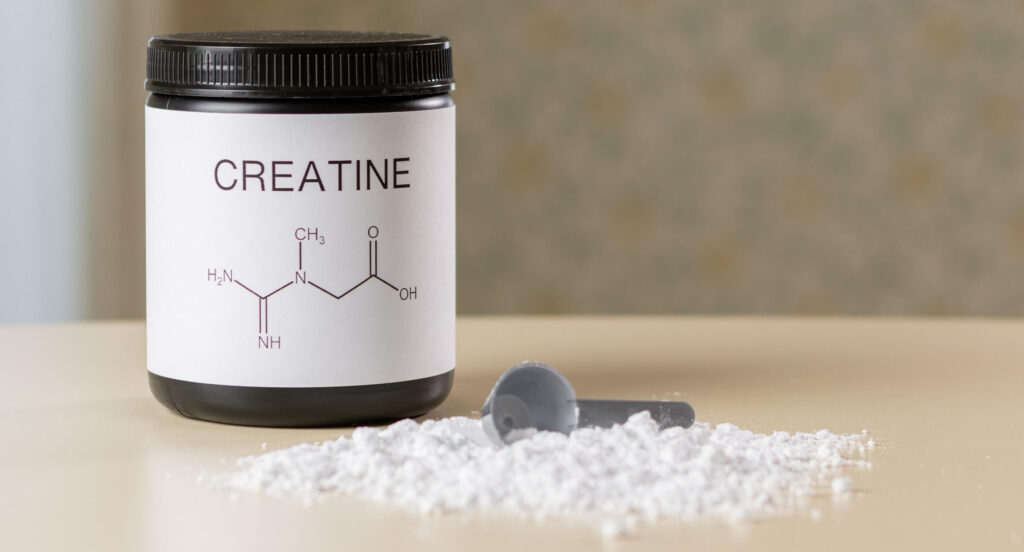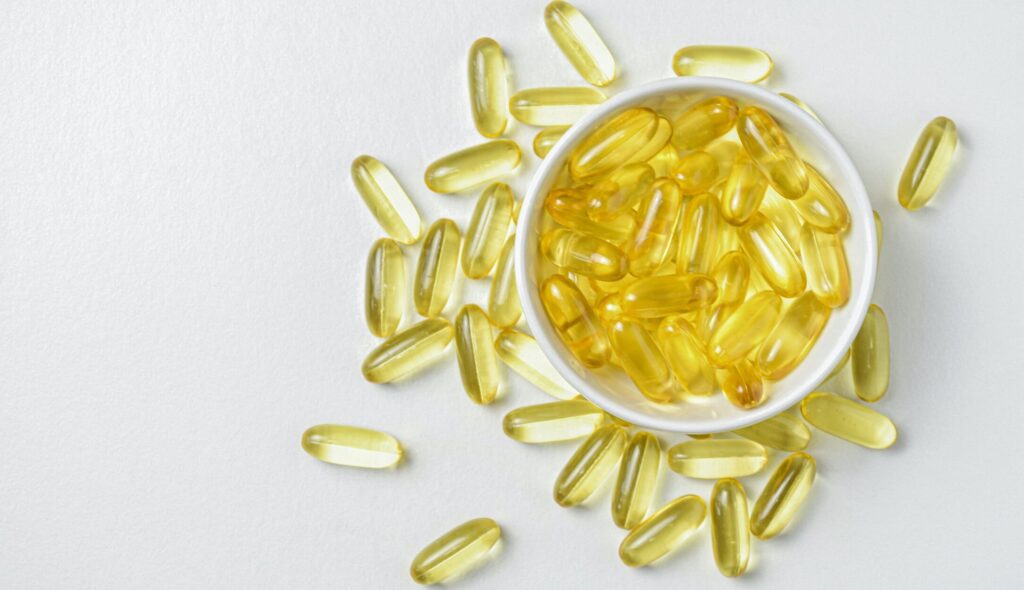If you have low energy levels, it means that you are consuming more energy than what your body is able to produce. For this reason you need best supplement to boost energy. There are two primary reasons for low energy levels. First, a large amount of energy is used for an elevated inflammatory response. Second, the body is unable to produce energy from food. High levels of inflammatory response change our metabolism into a less efficient way of producing energy.
This also correlates or is associated with chronic diseases. Therefore, if you are ill, you may be using much more energy than usual. You need to take supplements to increase your energy level. Your body needs adequate levels of energy to stay healthy and fit. This can be obtained from healthy nutritious foods or through health supplements.
This article review the 10 best supplements to boost energy, which may be helpful to boost your energy levels.

The 10 best supplements to boost energy –
1. Iron:
Iron is a key mineral your body needs for a lot of things, like making sure oxygen gets around. It’s also a protein in your red blood cells that helps your cells work and grow properly. It’s important for all ages, from kids to pregnant women and the elderly. Plus, it’s important for your brain to develop and grow properly in kids. Iron is stored in your liver, muscle, bone marrow, and spleen and is delivered throughout your body through blood circulation. You can get it in two forms – heme and non-heme. Heme is found in animal foods like meat and fish, while non-heme can be found in plant-based foods like nuts and beans.
Benefits:
- Increases energy level
- Improves athlete’s performance
- Helps maintaining iron level
- Important for women for pregnancy and heavy menstrual cycles
- Imperative to preserve healthy cells, skin, hair, and nails
Side-effects:
Deficiency of iron may lead to anemia, impair cognitive ability, and decrease immunity. Supplements are safe to use in correct doses, but excess doses may have following side-effects:
- Weakness, chest pain, fast heartbeat
- Loss of concentration
- Breath shortness
- Hair loss
- Headache, dizziness
- Extreme fatigue
- Poor appetite
- Inflammation
Risks of Iron deficiency:
Following people are risks of iron deficiency:
- Children and infants born early
- Who donate blood frequently
- Have gone undergone gastric bypass surgery
- Who menstruate and pregnant
- Vegetarians
2. Rhodiola:
Rhodiola Rosea, a plant native to cold and high altitudes regions of Europe and Asia, is a flowering perennial herb that is classified as an adaptogen. It is believed to stimulate the body’s capacity to resist fatigue, and has a wide range of health benefits. For thousands of years, Rhodiola has been used to treat a range of ailments, from anxiety and depression to fatigue and more. Additionally, it has been found to improve focus, reduce brain fog, and increase the body’s resistance to fatigue.
Benefits:
- Improve exercise performance and improves endurance
- Helps to feel alert and decreases stress, anxiety, and depression
- Improve mood
- Assist in recovery afterwards
- Minimum fatigue
- Improves mental performance
- Enhance sharpness
- Protect cells from damage and
- Improve brain function
- Regulate heartbeat
- Manage diabetes
Side-effects:
Supplements are safe to use in correct doses, but excess doses may have following side-effects:
- Dizziness, and headache
- Stomach upset
- Drowsiness
- Sleep disorder
- Dry mouth
- Unsafe during pregnancy and for breast feeding women
3. Ashwagandha:
Since ancient times, ashwagandha herb has been used in Ayurveda. This Herb grows in Middle East, Africa, Asia and Mediterranean. Traditionally used in Indian medicine. Also known as an Indian ginseng, this evergreen, small shrub has velvety, tomato-like leaves. Its roots are used to treat various diseases such as stress, constipation, anxiety and many others. This herb helps in regulating hormones, immune system and increasing energy levels. It fulfills all nutritional needs to lead a healthy life.
Benefits:
- Raise energy level
- Improve endurance and Muscle strength gain
- Reduce food craving and Manage body weight
- Reduce blood sugar level
- Ease anxiety & stress
- Reduce inflammation
- Boost immunity
- Help body to adapt stress
- Improves brain function
- Good for heart health
Side-effects
Ashwagandha is considered safe for consumption in correct dosage, but excessive dosage may have some side-effects as follows:
- Not safe for breast feeding women
- Stomach upset, vomiting and diarrhea
- Not safe for ulcer patient
- Affect blood pressure
- Allergic action and rapid heart beat

4. Citrulline:
This supplement increases nitric oxide production in the body, which relaxes and widens the blood vessels, improving the ability of the red blood cells to transport blood. This can result in lower blood pressure, improved blood flow, improved sleep quality, reduced anxiety and depression, and improved concentration and memory. It can also reduce fatigue and support the body’s oxygen and nutrient levels.
You can get citrulline from a variety of foods such as melons, nuts, chickpeas, pumpkin, bitter guard, cucumber, and more. There are two types of dietary supplements containing citrulline: L-Citrulline, which is a pure citrulline compound, and Citrulline Malate, which is a combination of two other compounds called malate and citrulline, both of which are important for energy production. Both are safe to consume, and the recommended dose is 3 to 6 grams per day, or about 8 grams per day.
Benefits:
- May reduce blood pressure
- Help your blood vessel widen
- Boost exercise performance
- Reduces muscle fatigue
- Leads to gain strength
Side-effects:
Supplements are safe to use in correct doses, but excess doses may have following side-effects:
- Stomach upset
- Heartburn
- Note safe during pregnancy and for breast feeding women
- Rapid heartbeat
- Might hinder with blood pressure control during and after surgery
5. Vitamin B 12:
Vitamin B 12 helps make red blood cells, which carry oxygen around your body. It’s also really important for your brain and nerve cells to work properly. Plus, it helps bind to the protein in your food. You can get it from animal sources like fish, meat, eggs and poultry, but you can also get it from plant sources like dairy, milk, cheese yogurt and fortified foods.
Benefits:
- Improve energy level
- Maintaining good cognitive function
- Healthy hair, nail and skin
- Prevent anemia
- Helps to make DNA
Side-effects:
Lack of B12 may lead to risk of fatigue, weakness or weight loss, confusion, poor memory, sore and red tongue, mouth ulcers, paraesthesia, disturbed vision, irritability, depression. Supplements are safe to use in correct doses, but excess doses may have following side-effects:
- Bloating, and diarrhea
- High blood pressure
- Poor cardiovascular health
- Unsafe for pregnant and breast feeding women
6. Coenzyme Q 10:
CoQ10 is a naturally occurring enzyme and antioxidant that helps keep your immune system healthy. As you get older, the amount of CoQ10 in your body decreases, but it still helps your cells produce energy. It’s a fat soluble compound that breaks down in fats, but not water, and it helps your body use food more effectively for energy. It can also help with a range of conditions, like lowering blood pressure, treating heart failure, preventing or treating adverse effects, and reducing muscle and liver pain. You can find CoQ10 in lots of different foods, like chickens, pigs, and beef, and you can also get it from supplements.
Benefits:
- Effective for Energy production and speedy recovery
- Improves physical performance
- Reduces tiredness
- Can be used to cure Heart failure
- Manages diabetes symptoms
- Increasing sperm motility
- Improves immune system function
- Provide cardiovascular benefits
- Improves nerve damage
- Decreases risk of blood infection and gum disease
- Prevent migration
- Lowers the risk of heart related issues
Side-effects:
Supplements are safe to use in correct doses, but excess doses may have following side-effects:
- Insomnia
- Stomach upset
- Nausea, vomiting, and diarrhea
- Fatigue
- Allergic Skin rashes, and irritability
- Headaches and dizziness
- Digestive problems – loss of appetite
- Lower blood pressure
7. Creatine:
If you’re looking for a natural way to tighten your muscles, Creatine is the way to go. It’s found in your body in small amounts, like in your brain and muscles. Plus, it’s stored in your skeleton muscle and used when you’re active. Supplements made of amino acids are popular with fitness fans and bodybuilders, and they’re used to boost your energy, performance, and endurance. They can help keep your body energized during high-intensity workouts. You can find Creatine in fish, red meat, and milk, and vegetarians can even take supplements to get more of it in their bodies.
Benefits:
- Improves exercise performance
- Helps to Increase energy levels
- Increases strength and muscle gain
- Helps to speed up the recovery
- Prevent the severity of injury
- Helps athlete tolerance during heavy training loads
- May help skin aging, treat muscle disease
- Helps in increases hormone levels
Side-effects:
Supplements are safe to use in correct doses, but excess doses may have following side-effects:
- Muscle cramps
- Stomach disorders and dehydration
- Gastrointestinal problems
- Kidney disease

8. Ginseng:
Ginseng has been used as traditional Chinese medicine for thousands of years. The quality of Ginseng products may differ. The medicinal properties of Ginseng come from the slow growing plant with a fleshy root. There are many varieties of Ginseng, some of which have anti-inflammatory properties. Ginseng has also been used to treat and prevent the flu virus.
Benefits:
- Enhance overall wellbeing
- Boost energy
- Bolster immunity
- Sharper cognitive function
- Reduce stress and anxiety
- Help fight fatigue
- Lower blood sugar and cholesterol levels
- Reduce stress, promote relaxation
Side-effects:
Ginseng supplements are safe to use in correct doses, but excess doses may have following side-effects:
- Headaches
- Sleep disorders
- Digestive problems
- Irregular blood pressure
- Blood sugar
- Diarrhea, nauseas and vomiting
- Rapid heartbeat
- Skin reaction
9. Vitamin D:
Vitamins are essential for the proper functioning of cells and the development of the body. There are thirteen different types of vitamins that are essential for the body to function optimally, such as Vitamin A, Vitamin B, Vitamin C, Vitamin D, Vitamin E, and Vitamin K. Vitamin D is particularly important for the health of the bones, the immune system, energy levels, and cell growth. A deficiency of vitamin D can lead to softening of bones in children and malformed bones in adults. Natural sources of vitamin D include fish, fish-based fat, egg yolk, fortified cereals, and direct sunlight.
Benefits:
- Boosting energy levels
- Makin muscle work efficiently
- Reduce cancer cell growth,
- Help in control infection
- Reduce inflammation
Side-effects:
Lack of vitamin D may soften your bones in children and fragile, misshapen bones in adults. Supplements are safe to use in correct doses, but excess doses may have following side-effects:
- Joint pain, bone pain, muscle pain
- Low energy
- Frequently sickness
- Anxiety

10. Magnesium:
Magnesium is an essential mineral in the body that supports more than 300 different functions including energy production. Magnesium is essential for normal bone formation in the body. A deficiency of magnesium can lead to diseases such as high blood pressure, blocked artery, diabetes, stroke and hereditary heart disease. Foods rich in magnesium are usually high in magnesium, such as legumes, green leafy vegetables and whole grains, as well as nuts and seeds. Dairy products, chocolate, coffee and meats are also sources of magnesium.
Benefits:
- Energy production
- Muscle and nerve function,
- Control blood glucose,
- Helps to improve sleep quality
- Manage migration, hypertension, and type 2 diabetes asthma
- Healthy bone formation
- Improve cardiovascular health
- Helps to improve mood disorders, depression and anxiety
Side-effects:
Lack of magnesium may have gastric issues, and loss of appetite. Supplements are safe to use in correct doses, but excess doses may have following side-effects:
- Nausea, stomach upset, vomiting, and diarrhea
- Muscle cramps
- Tingling
- Irregular heartbeat, low blood pressure, slower breathing, and confusion
- Coma and Death
Types of energy supplements:
- Individual vitamins and herbs– Naturally boost your energy.
- Natural nootropic stacks – Combine different energy-boosting ingredients, vitamins, and adaptogens.
- Synthetic energy stimulants – Usually require a prescription.
It is advised to avoid the use of synthetic energy pills, as they are mainly composed of chemical compounds that can lead to various adverse reactions. These substances usually have a short-term effect, however, they may not be beneficial in the long run. Furthermore, they may also have other negative consequences, such as addiction. Therefore, it is recommended to always opt for the natural ingredients option.
More tips to boost your natural energy levels:
- Ease your load – Primary reasons for fatigue is overburden. This may include professional, family, and other social obligations. Try to simplify your list and set your priorities in terms of the most important tasks.
- Evade smoking – Smoking always threatens your health, and it actually siphons off your energy by causing insomnia. Additionally this affect your health as well, like speeds the heart rate, raises blood pressure, and stimulates brain-wave activity. It affect your sleep too.
- Control stress – Stress sensations consume massive amounts of energy. Discussion with a friend or relative, joining a support group, or seeing a psychotherapist may all help to relax stress.
- Exercise – Exercise helps to get sleep more soundly. Additionally, it gives your cells extra energy to burn and circulates oxygen.
- Sound sleep – Sound sleep always promote your energy level, and provide complete rest your body organs. To get better quality sleep at night, avoid napping during day.
- Use caffeine – Caffeine helps to increase alertness, and sharpen your mind. You should use it carefully to get the energizing effects.
- Limit alcohol – avoid drinking alcohol as much possible, because it affect your energy level.
- Eat for energy – Prefer to eat foods with a low glycemic index, whose sugars are absorbed slowly. This may be helpful for you to avoid the lag in energy.
- Drink water – Water has been shown to enhance performance. It fulfill the fluids in your body and control feeling of fatigue.

Conclusion:
Maintaining your energy level is very important for you to perform your daily activities. That’s why you should only consume a diet full of nourishment. However, you may also have other options, such as taking health supplements. Such supplements are very beneficial for people who suffer from severe energy deficiency and are unable to consume a healthy diet due to various reasons. Health supplements can also be very beneficial for athletes who need more energy to perform their daily activities. In summary, to maintain your body’s energy level, you must either consume a healthy diet or take health supplements. Before starting any health supplement, it is recommended that you consult your doctor.
Reference Used:
https://www.webmd.com/sleep-disorders/supplements-and-energy-what-to-know
https://www.healthline.com/nutrition/best-supplements-for-energy
https://en.wikipedia.org/wiki/Bodybuilding_supplement
https://www.livestrong.com/article/13771784-best-vitamins-for-energy/
https://www.humann.com/blogs/explore/15-supplements-vitamins-for-unbeatable-energy





